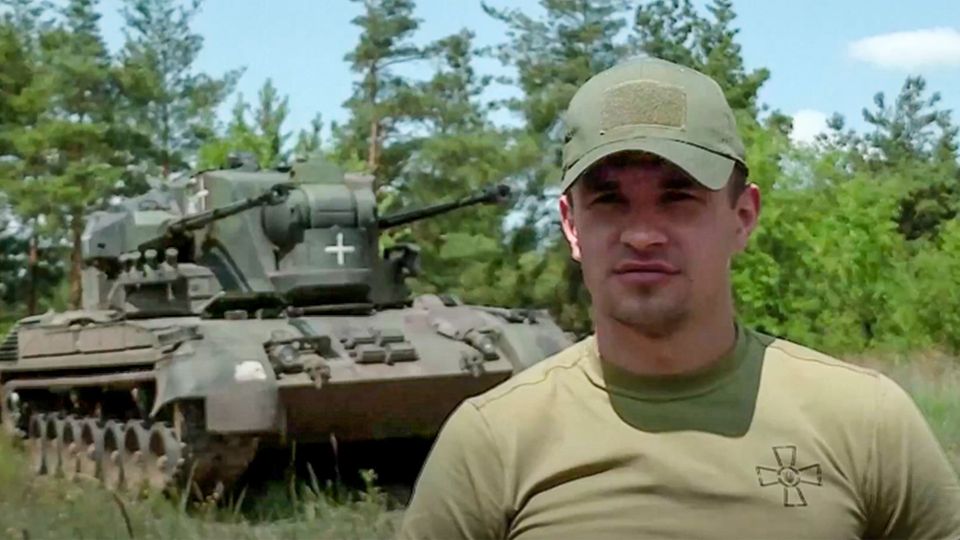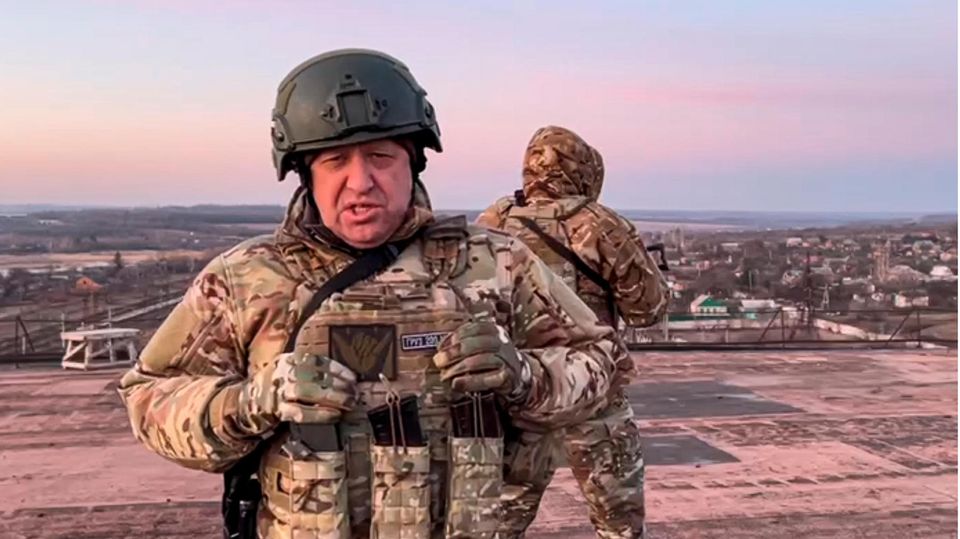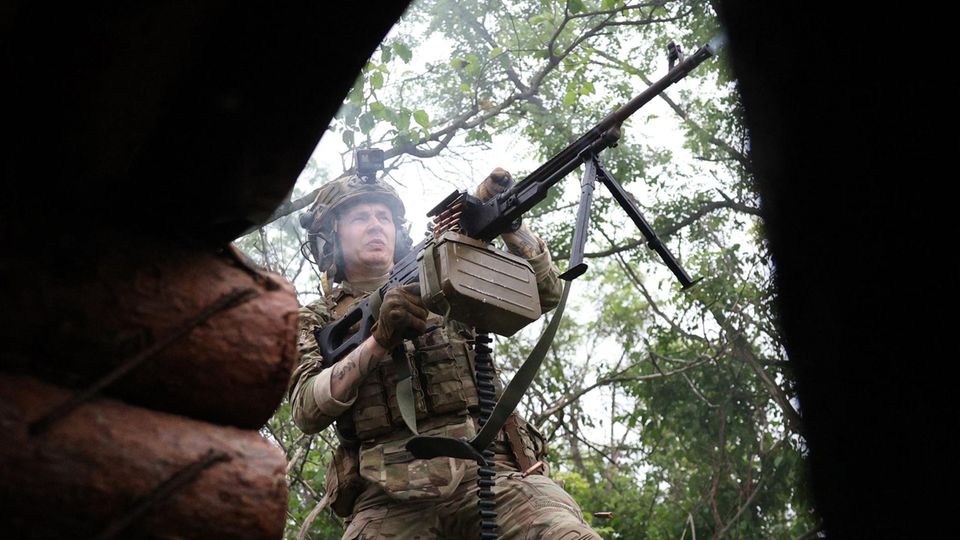Suicidal thoughts, nonsensical orders, bad morals: Russian prisoners of war in Ukraine have reported to the US broadcaster CNN about leadership chaos in the Kremlin troops and the horrors of trench warfare.
Russia’s war of aggression against Ukraine has been going on for almost 500 days. Several hundred thousand Russian and Ukrainian soldiers have been killed or wounded since the invasion by Kremlin forces began on February 24, 2022. Since December 2022 alone, more than 20,000 Russians have lost their lives in the fighting, US National Security Council spokesman John Kirby said in early May, citing intelligence information. Another 80,000 were injured.
Half of those killed belonged to the Wagner mercenary group, Kirby explained. And most of them were ex-convicts who were “thrown into battle” in the battle for the eastern Ukrainian city of Bakhmut, and who lacked “adequate combat training, combat leadership, or any sense of organizational leadership and control.”
Three Russian prisoners of war described to the US broadcaster CNN what it felt like to be “thrown into battle”: Bullets and grenades “flew and whistled over us for three days and exploded around us,” reported Anton, a Russian soldier, stationed south of Bakhmut. “We hopped like rabbits under mortar shells and bombs”.
“We had no fighting spirit”
According to the broadcaster, Anton, who is not really called that, was held with seven other prisoners by the Ukrainian army in a makeshift prison in eastern Ukraine. According to CNN, they were able to interview three of them before they were handed over to the Ukrainian secret service. In view of the guidelines published by the International Committee of the Red Cross for reporting on prisoners of war and in order to protect them from possible problems in the event of a return to Russia, the channel did not use their real names.
In the presence of two Ukrainian soldiers, the three men spoke about the poor morale in their trenches, the disorder and the apparent dispensability of some Russian troops.
He was in prison in Russia for drug possession, Anton said, his third sentence after being convicted of a similar crime and a robbery in the past. He was promised a clean record if he volunteered to fight in Ukraine, but didn’t know he would be sent to the front. He and his fellow prisoner Slava only received two weeks of basic training before they were deployed.
“We didn’t have a fighting spirit,” Slava admitted to CNN. “We expected to hold the line of defense as we were promised. We were told that Wagner was in charge of hostilities. And that we would be the ones stationed in the liberated areas.”
He was serving a 10-year sentence in a Russian prison for drug trafficking when the war began, Slava told the broadcaster. He was also promised that his criminal record would be erased if he went to war. He and Anton fled to a shelter when the two became prisoners of war.
The Endless Battle
New satellite images document the total destruction in the hard-fought area of Bachmut
After days of shelling – without food and only with rainwater to drink – Ukrainian soldiers advanced to the shelter hole, Anton said. He heard a click and two grenades were thrown in. The depth of the hole protected him from the explosion. “It was quiet for a while, then they came back. I thought that was the end,” CNN quoted the prisoner of war as saying. He believed he would either be executed or brutally tortured. “I switched the rifle to single shot mode and thought I’d shoot myself. But I couldn’t.”
“Our artillery, as usual, did not work”
Sergei, another Russian POW, told CNN that he was just shouting “I surrender” when two shells fell near him, killing the soldiers next to him in the trenches. His commander had already fled.
“I hid in the trenches. Those who tried to run from one position to another were simply shot down by machine guns and tanks,” he recalled. When he saw the Ukrainian soldiers, he crawled away in fear and huddled with two soldiers. One of them called for Russian artillery cover over a radio before he was killed by flying shrapnel.

“Our artillery, as usual, didn’t work,” Sergei said. Then the Kremlin units would have used Grad rocket launchers, but they would have missed their target again and again. Finally, the Ukrainians came. “I started yelling, ‘We surrender’, then they threw a grenade at us.” He felt a splinter hit his hand.
“They asked me who I was and I said that I was Russian and that I was surrendering,” Sergei continued. When he wanted to climb out of the ditch, a second grenade came flying. “I managed to crawl halfway out of the trench in a second.” The soldier behind him was killed by the grenade and he was injured in the leg. According to CNN, a Ukrainian soldier later explained that during the fighting it was difficult to understand what the Russian soldiers were saying.
Unlike Anton and Slava, according to CNN, Sergei is not a Russian convict, but a contract soldier. The young father told the broadcaster that he spent the time he had committed to last year in Cherson in southern Ukraine. After his return home, the military prosecutor threatened him that he would be imprisoned for desertion if he did not return to the battlefield.
His previous military experience did not prepare him for what awaited him in the “meat grinder” Bakhmut, Sergei reported. “It was very different from what I saw on TV. A parallel reality. I felt the fear, pain and disappointment with my commanders.”
Ukraine wants to use Russians for prisoner exchange
Anton and Slava shared similar stories, according to CNN. To get food and water, they would have had to walk five kilometers through minefields. Their immediate commander was also a convict. Their commanders would have used the stockpile of painkillers to get high. Under the influence of the drugs, these commanders would have sent soldiers out into the mortar fire and given “nonsensical orders”.
The reports of Anton, Slava and Sergei cannot be independently confirmed. One has to assume that the prisoners of war – even if they gave the interviews voluntarily – may have had the Ukrainian reactions to it in mind when making their decision and when making their statements. According to CNN, however, the Russians did not appear to be under duress during the interrogations.
A Ukrainian soldier in charge of the makeshift prison told CNN that for the past six months he has been receiving Russian convicts with similar stories – in contrast to the highly motivated soldiers captured in combat last year. They want to exchange the Russians for Ukrainian soldiers who are being held by the Kremlin troops, but have no great hopes in this regard, the soldier said. “They are not worth much to the Russian government.”



